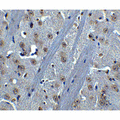Login
Registration enables users to use special features of this website, such as past
order histories, retained contact details for faster checkout, review submissions, and special promotions.
order histories, retained contact details for faster checkout, review submissions, and special promotions.
Forgot password?
Registration enables users to use special features of this website, such as past
order histories, retained contact details for faster checkout, review submissions, and special promotions.
order histories, retained contact details for faster checkout, review submissions, and special promotions.
Quick Order
Products
Antibodies
ELISA and Assay Kits
Research Areas
Infectious Disease
Resources
Purchasing
Reference Material
Contact Us
Location
Corporate Headquarters
Vector Laboratories, Inc.
6737 Mowry Ave
Newark, CA 94560
United States
Telephone Numbers
Customer Service: (800) 227-6666 / (650) 697-3600
Contact Us
Additional Contact Details
Login
Registration enables users to use special features of this website, such as past
order histories, retained contact details for faster checkout, review submissions, and special promotions.
order histories, retained contact details for faster checkout, review submissions, and special promotions.
Forgot password?
Registration enables users to use special features of this website, such as past
order histories, retained contact details for faster checkout, review submissions, and special promotions.
order histories, retained contact details for faster checkout, review submissions, and special promotions.
Quick Order
| Catalog Number | Size | Price |
|---|---|---|
| LS-C498465-50 | 50 µg | $294 |
| LS-C498465-100 | 100 µg | $360 |
Polyclonal Rabbit anti‑Human BTK Antibody (HRP) LS‑C498465
Polyclonal Rabbit anti‑Human BTK Antibody (HRP) LS‑C498465
Antibody:
BTK Rabbit anti-Human Polyclonal (HRP) Antibody
Application:
ELISA
Reactivity:
Human
Format:
Horseradish Peroxidase, Unmodified
Other formats:
Toll Free North America
 (800) 227-6666
(800) 227-6666
For Research Use Only
Overview
Antibody:
BTK Rabbit anti-Human Polyclonal (HRP) Antibody
Application:
ELISA
Reactivity:
Human
Format:
Horseradish Peroxidase, Unmodified
Other formats:
Specifications
Description
BTK antibody LS-C498465 is an HRP-conjugated rabbit polyclonal antibody to human BTK. Validated for ELISA.
Target
Human BTK
Synonyms
BTK | AGMX1 | AT | ATK | XLA | PSCTK1 | B-cell progenitor kinase | BPK | Bruton tyrosine kinase | Tyrosine-protein kinase BTK | IMD1
Host
Rabbit
Reactivity
Human
(tested or 100% immunogen sequence identity)
Clonality
IgG
Polyclonal
Conjugations
Purification
Protein G purified
Modifications
Unmodified
Immunogen
Recombinant Human Tyrosine-protein kinase BTK protein (254-443AA)
Specificity
Non-receptor tyrosine kinase indispensable for B lymphocyte development, differentiation and signaling. Binding of antigen to the B-cell antigen receptor (BCR) triggers signaling that ultimately leads to B-cell activation. After BCR engagement and activation at the plasma membrane, phosphorylates PLCG2 at several sites, igniting the downstream signaling pathway through calcium mobilization, followed by activation of the protein kinase C (PKC) family members. PLCG2 phosphorylation is performed in close cooperation with the adapter protein B-cell linker protein BLNK. BTK acts as a platform to bring together a diverse array of signaling proteins and is implicated in cytokine receptor signaling pathways. Plays an important role in the function of immune cells of innate as well as adaptive immunity, as a component of the Toll-like receptors (TLR) pathway. The TLR pathway acts as a primary surveillance system for the detection of pathogens and are crucial to the activation of host defense. Especially, is a critical molecule in regulating TLR9 activation in splenic B-cells. Within the TLR pathway, induces tyrosine phosphorylation of TIRAP which leads to TIRAP degradation. BTK plays also a critical role in transcription regulation. Induces the activity of NF-kappa-B, which is involved in regulating the expression of hundreds of genes. BTK is involved on the signaling pathway linking TLR8 and TLR9 to NF-kappa-B. Transiently phosphorylates transcription factor GTF2I on tyrosine residues in response to BCR. GTF2I then translocates to the nucleus to bind regulatory enhancer elements to modulate gene expression. ARID3A and NFAT are other transcriptional target of BTK. BTK is required for the formation of functional ARID3A DNA-binding complexes. There is however no evidence that BTK itself binds directly to DNA. BTK has a dual role in the regulation of apoptosis.
Applications
- ELISA
- Applications tested for the base form of this product only
Presentation
PBS, pH 7.4, 0.03% Proclin 300, 50% glycerol.
Storage
Short term: -20°C; Long term: -80°C; Avoid freeze-thaw cycles.
Restrictions
For research use only. Intended for use by laboratory professionals.
About BTK
Publications (0)
Customer Reviews (0)
Featured Products
Species:
Human, Mouse
Applications:
IHC, IHC - Paraffin, ICC, Western blot
Species:
Human, Mouse
Applications:
IHC, ICC, Immunofluorescence, Western blot, ELISA
Request SDS/MSDS
To request an SDS/MSDS form for this product, please contact our Technical Support department at:
Technical.Support@LSBio.com
Requested From: United States
Date Requested: 3/12/2025
Date Requested: 3/12/2025


![BTK Antibody - Immunohistochemistry: BTK [p Tyr223] Antibody - IHC of BTK in kidney cancer xenograft using DAB with hematoxylin counterstain. This image was taken for the unconjugated form of this product. Other forms have not been tested.](https://lsbio-7d62.kxcdn.com//image2/btk-antibody-phospho-tyr223-ls-c180161/136103_422015.jpg)









